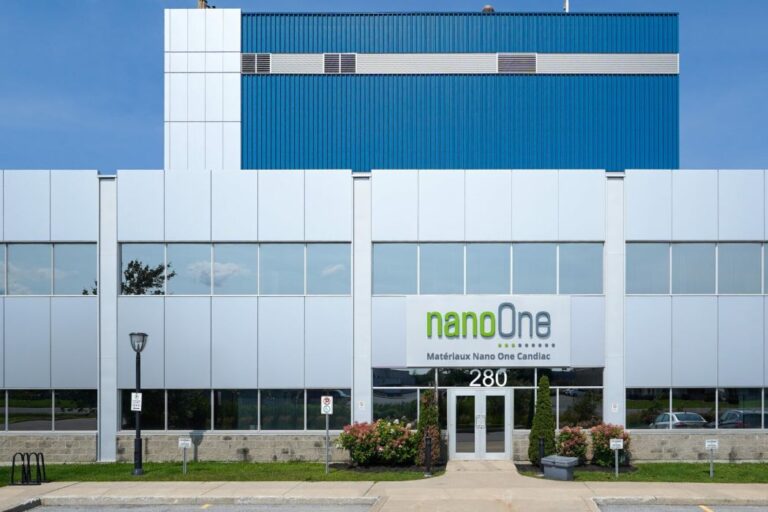$17.8 million CAD to support Nano One’s Candiac, Québec and British Columbia facilities.
The United States (US) Department of Defense (DoD) has awarded $12.9 million ($17.8 million CAD) to Burnaby-based battery materials company Nano One.
Nano One offers a processing technology for lithium iron phosphate (LFP) to produce the high-performing battery materials used in electric vehicles, energy storage, and consumer electronics. The company claims that, as opposed to other battery material processing techniques, its processes eliminate sodium sulfate by-products, require less water and less energy, and produce more durable battery cathodes.
The DoD grant will go towards expanding its research and development efforts as well as the production capacity at Nano One’s Candiac, Québec plant, which the company claims is North America’s only LFP production facility. Nano One said the project supports product validation and potential sales with customers that include suppliers to the US government.
“Shoring up domestic production capabilities across key nodes of the large-capacity battery supply chain is essential for meeting growing battery demands,” Assistant Secretary of Defense for Industrial Base Policy Laura Taylor-Kale said in a statement. “This award is another important advance towards increasing the availability of safer, lower-cost, and longer-lasting battery materials, which will strengthen US national security.”
RELATED: Lithium-ion battery developer UgoWork closes Series C funding to expand HQ, production facility
The funding comes from the DoD’s Defense Production Act Investments program, which uses funds earmarked by the US Inflation Reduction Act to expand support for the domestic production of critical materials in key supply chains. According to the DoD, Canada has been considered a domestic source of materials and thus eligible for Defense Production Act funds since 1992.
The DoD added that LFP has “considerable advantages” for military applications, including high-power and safety characteristics, and that all LFP inputs can eventually be sourced in North America, reducing reliance on foreign sources.
Nano One acquired the Candiac production facility along with its team in 2022 to pilot and demonstrate its LFP process at a commercial scale. The company said its long-term plan is to license and deploy its LFP battery materials globally, and to diversify its revenue streams with licensing fees, engineering services, equipment procurement, and sales from its Candiac plant.
Feature image courtesy Nano One.
